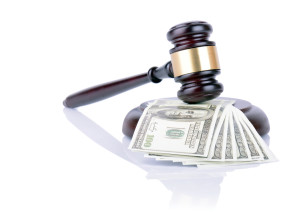The Fourth Circuit Court of Appeals has allowed the recovery of expert witness fees in Maryland where a fee=shifting provision specifically used the word “fees” separately from “attorney fees.”
The Underlying Dispute
In November 2005, Lennar entered into a contract with three companies (Settlers Crossing, Washington Park Estates, and Bevard Development Company) to purchase 1,250 acres of land in Prince George’s County for $200 million. Lennar paid $20 million in deposits. Sandler, the sole owner of a seller company, personally guaranteed the return of the $20 million deposit if the seller companies breached the contract.
In 2006, Lennar asked the seller companies to renegotiate the contract because of the decline in the residential housing market. The companies agreed and in May 2007, the purchase price of the property was reduced from $200 million to $134 million. All parties agreed to a guarantee of specific performance by Lennar. During this time, the seller companies received a $100 million loan from iStar, which was partially secured by the property and the sellers’ rights under the purchase agreement.
In 2008, following a series of disputes, Lennar notified the companies that it elected to terminate the contract and demanded a refund of its $20 million deposits. The seller companies refused. During this time, the seller companies defaulted on their loan to iStar and iStar foreclosed upon the property.
The District Court Case
In July 2018, Lennar filed a lawsuit against iStar, Sandler, and the three seller companies in the United States District Court District of Maryland. Lennar alleged breach of contract, fraudulent inducement, concealment breach of environmental representations and warranties, and claim for declaratory judgement. The seller companies and iStar filed a joint counterclaim for declaratory relief and specific performance of the contract.
Following pretrial proceedings, two main issues remained for trial: (1) whether the seller companies denial of Lennar’s access to the property constituted a breach of contract; and (2) whether the seller companies had breached the environmental representations and warranties in the purchase agreement. A bench trial was held to resolve these issues.
The majority of the trial was spent on the environmental representations claim. Lennar presented three expert witnesses to testify on this issue. iStar called four experts to testify on this issue.
Following the bench trial, the district court determined that Lennar had failed to satisfy its burdens and iStar was entitled to specific performance of the contract. The district court entered judgment in favor of iStar. Lennar appealed and the Fourth Circuit affirmed the judgment.
The Fee-Shifting Agreement
Following the Fourth Circuit’s affirmance, iStar sought reimbursement of its costs, fees, and expenses in accordance with a fee shifting provision in the purchase agreement. Specifically, iStar requested $14,880,227.82 in attorneys’ fees, $656,002.12 in expert witness fees, and $553,712.56 in costs.
The relevant provision stated:
In the event of any litigation arising under or pursuant to this agreement . . .
the parties hereby agree that . . . the prevailing party in such matter shall be
entitled to recover from the non-prevailing party[] such party’s costs, fees
and expenses incurred in such litigation, including actual and reasonable
attorneys’ fees and court costs.
Lennar challenged the reasonableness of the attorneys’ fees and the entitlement to expert witness fees.
The district court determined that the plain language of the provision entitled authorized the recovery of all attorney fees, fees, and costs. Lennar contested the awarding of expert witness fees, arguing that Maryland law does now allow the recovery of expert witness fees under a fee-shifting agreement. Lennar cited two district court cases where the district court determined that the recovery of “all costs” and “expenses” did not provide for the recovery of expert witness fees.
The Fourth Circuit noted that the fee-shifting provision in this case was broader than the provision in the other cases. Here, the provision specified “attorney fees” as a separate item from “fees.” The court determined that the plain language of the contract indicated that attorney fees were only a subset of that total fees that may be recovered. Accordingly, the Fourth Circuit determined that the awarding of expert witness fees was proper.




